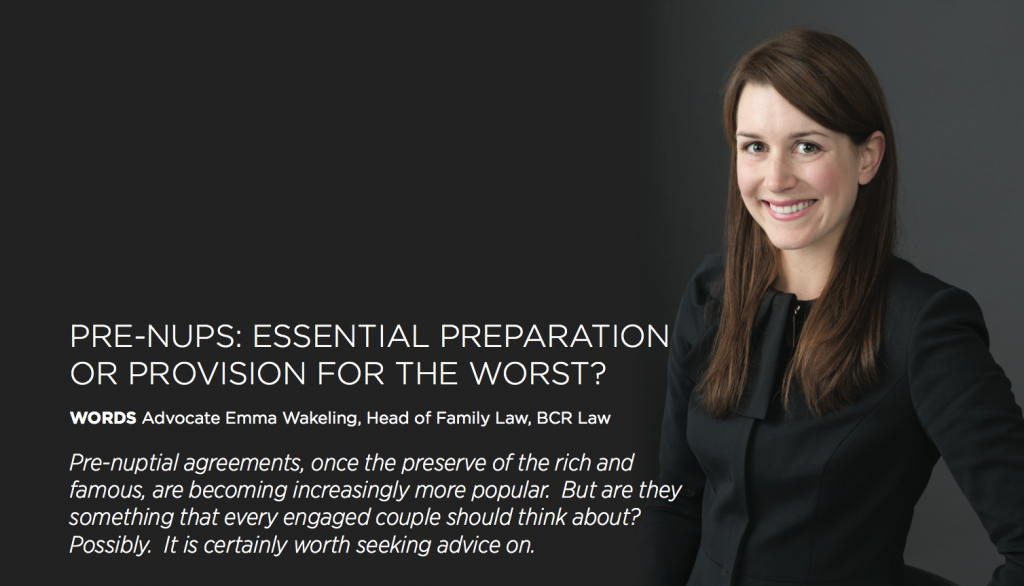Pre-Nups: Essential Preparation or Provision for the Worst?

Just as we are advised to make a will, to plan for retirement and to think about various other insurance policies along the way, a pre-nuptial agreement is something that may well be appropriate in certain sets of circumstances, to both protect and to provide in the case of a marriage breakdown. Such agreements tend to be used where there is pre-acquired wealth, trust assets, inheritance prospects or in cases of re-marriage.
While it is most unlikely that one would enter into a marriage expecting that it will end, sadly divorce is not uncommon, and such agreements could be viewed as taking prudent steps to avoid a potentially messy, costly and stressful battle should the marriage end, and to manage expectations before tying the knot. Certainly, pre-nuptial agreements are starting to lose the negative reputation they perhaps once had and they are being viewed more and more as a suitable way to plan ahead, so far as possible, just in case.
There are various pitfalls that one may encounter in trying to negotiate and sign a pre-nuptial agreement, which could then affect its validity.
Before signing a pre-nuptial agreement, both parties will need to take independent legal advice and understand the other’s financial position. There must be no pressure on a party to sign the agreement and timing is key. A draft agreement is not something that should be presented to a future spouse the day before the wedding!
However, a pre-nuptial agreement is not a one-stop solution. It cannot prevent a party from issuing Court proceedings for financial relief and it will not be automatically binding on a Court. Rather, it is one aspect that will be considered by a Court in its broad discretion in determining an appropriate settlement, with the Court having regard to all the circumstances of a case.
- The Court will make orders bearing in mind fairness.
- It will not simply “rubber stamp” an agreement if its effect will be one of financial hardship to a party or a child. If amendments need to be made to an agreement to ensure fairness then the Court will make them.
- The Court will ensure that the needs of any children of the marriage and the parties are met in the first instance. Any change of circumstances since the signing of the pre-nuptial agreement will also be relevant.
- For a short marriage where no children have been born, parties can expect the Court to pay more heed to any pre-nuptial agreement than a long marriage and one in which there are children.
It is therefore crucial to seek the assistance of a specialist family lawyer who can explain the procedure in detail and provide comprehensive and sound advice about the proposed agreement, whilst appreciating the sensitivities involved.
Sign up to our Newsletter
If you would like to get in touch with us regarding events and news stories, please contact:
